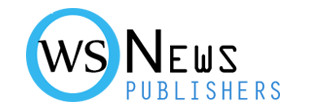On Friday, Delta Air Lines, Inc. (NYSE:DAL)’s shares inclined 0.73% to $45.40.
Delta Air Lines (DAL) will present at the Cowen and Company 8th Annual Global Transportation Conference at 3:30 p.m. ET on Wednesday, Sept., 9, 2015.
e online replay will be accessible at the same site shortly after the webcast is complete until Dec. 8, 2015.
Delta Air Lines, Inc. provides planned air transportation for passengers and cargo worldwide. The company operates in two segments, Airline and Refinery. Its route network comprises various gateway airports in Amsterdam, Detroit, Los Angeles, Minneapolis-St. Paul, New York-LaGuardia, New York-JFK, Paris-Charles de Gaulle, Salt Lake City, Seattle, and Tokyo-Narita. The company sells its tickets through various distribution channels, counting mobile and telephone reservations, delta.com, traditional brick and mortar, and online travel agencies.
Schlumberger Limited. (NYSE:SLB)’s shares dropped -1.7% to $74.96.
Schlumberger Limited (SLB) will hold a conference call on October 16, 2015 to talk about the results for the third quarter ending September 30, 2015.
The conference call is planned to start at 8:00 am (US Central time), 9:00 am (US Eastern time), 3:00 pm (Paris time). A press release regarding the Company’s results will be issued on October 15, 2015 after close of market.
Schlumberger Limited supplies technology, integrated project administration, and information solutions to the oil and gas exploration and production industries worldwide. The company operates through Reservoir Characterization Group, Drilling Group, and Production Group segments.
At the end of Friday’s trade, Halliburton Company (NYSE:HAL)‘s shares dipped -2.32% to $36.84.
Two of Halliburton’s Brazilian facilities – Macaé and Rio de Janeiro – and nine of the company’s business lines located there have received the American Petroleum Institute (API) Specification Q2 Certification, an advanced industry certification standard for oil and natural gas service companies. They are the first in Latin America to receive the certification.
The business lines that achieved the certification are Baroid, Cementing, Completion Tools, Drill Bits and Services, Production Enhancement, Production Solutions, Sperry Drilling, Testing and Subsea, and Wireline and Perforating.
API Q2 is a risk-based quality administration system approach that focuses on competency, service design, contingency planning, supply chain controls, preventive maintenance, inspection, service quality plans and administration of change. It is the first international standard that outlines fundamental, risk-based quality administration systems for oil and natural gas services companies. The certification demonstrates an organization’s commitment to exceed current generic quality administration system standards.
Halliburton Company provides a range of services and products to the upstream oil and natural gas industry worldwide. The company operates through two segments, Completion and Production, and Drilling and Evaluation. The Completion and Production segment provides production enhancement services, counting stimulation services and sand control services; and cementing services that comprise bonding the well and well casing, and casing equipment.
DISCLAIMER:
This article is published by www.wsnewspublishers.com. The Content included in this article is just for informational purposes only. All information used in this article is believed to be from reliable sources, but we make no representations or warranties of any kind, express or implied, about the completeness, accuracy, or reliability with respect to this article.
All visitors are advised to conduct their own independent research into individual stocks before making a purchase decision.
Information contained in this article contains forward-looking information within the meaning of Section 27A of the Securities Act of 1933 and Section 21E of the Securities Exchange Act of 1934, counting statements regarding the predictable continual growth of the market for the corporation’s products, the corporation’s ability to fund its capital requirement in the near term and in the long term; pricing pressures; etc.
Any statements that express or involve discussions with respect to predictions, expectations, beliefs, plans, projections, objectives, aims, assumptions, or future events or performance may be forward looking statements. Forward-looking statements are based on expectations, estimates, and projections at the time the statements are made that involve a number of risks and uncertainties which could cause actual results or events to differ materially from those presently anticipated. Forward looking statements may be identified through the use of such words as expects, will, anticipates, estimates, believes, or by statements indicating certain actions may, could, should might occur.



